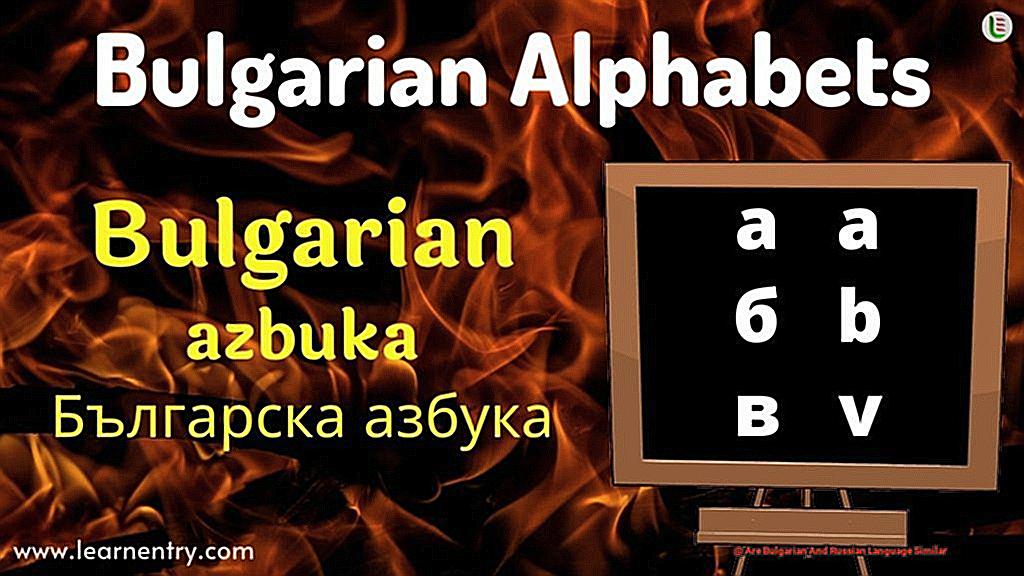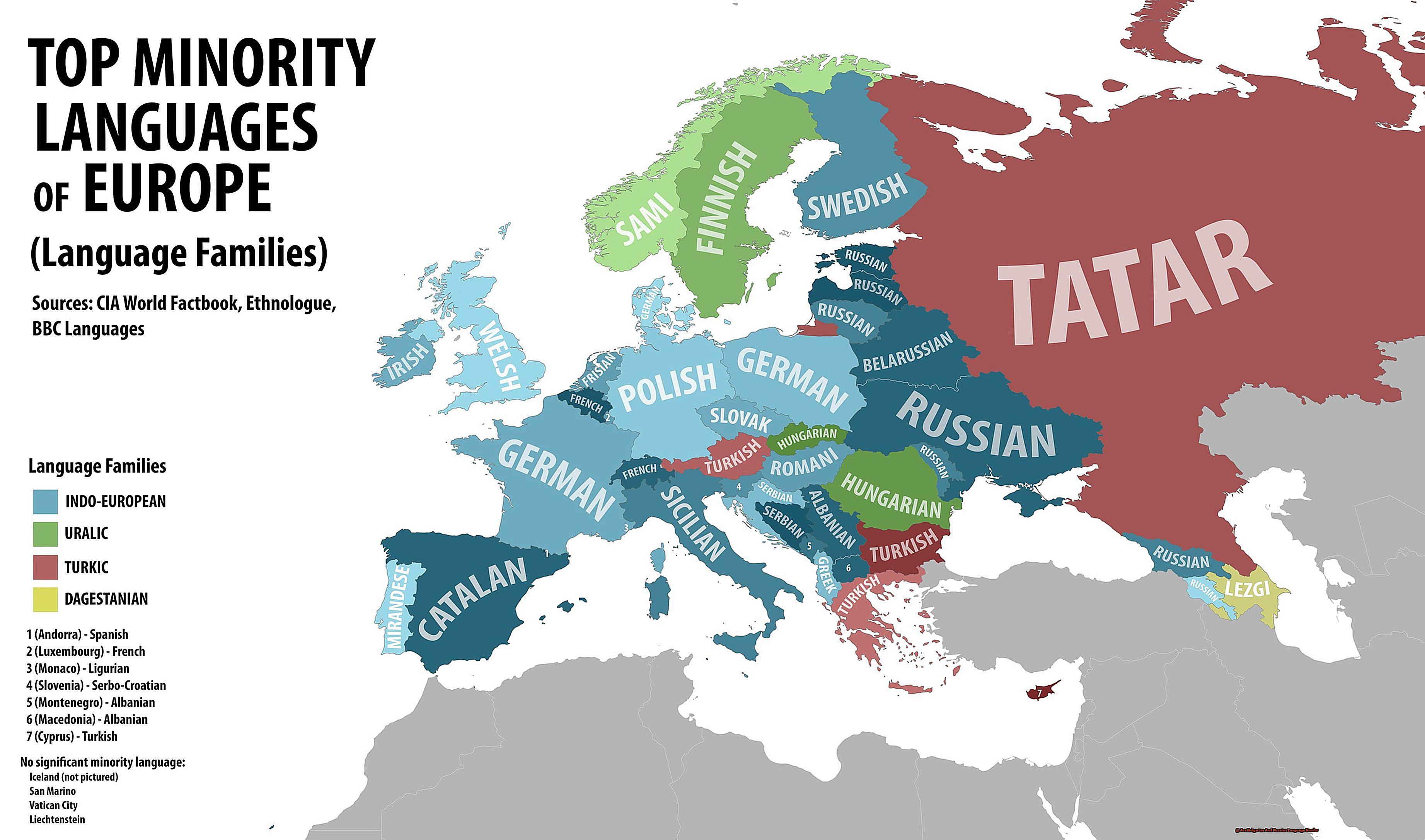
Are you familiar with the uncanny similarities between Bulgarian and Russian? As someone who grew up speaking both languages, I have always been captivated by their shared origins and distinct features.
From the iconic Cyrillic alphabet to intricate grammatical structures, these two Slavic tongues have a fascinating connection. Join me on this linguistic adventure as we delve into the parallels and nuances of Bulgarian and Russian.
So grab your favorite beverage (be it tea or vodka) and let’s embark on a journey through the world of Bulgarian and Russian together.
Are Bulgarian And Russian Language Similar?
Contents
- 1 Are Bulgarian And Russian Language Similar?
- 2 Differences in Writing Systems: Cyrillic vs Modified Cyrillic Alphabet
- 3 Phonetics: The Melodic Sound of Bulgarian vs the Harshness of Russian
- 4 Grammar: A Tale of Two Complex Structures
- 5 Vocabulary: Common Roots and Unique Words in Bulgarian and Russian
- 6 Gender Usage: Three Genders in Bulgarian vs Two in Russian
- 7 Commonalities: Six Cases, Complex Verb Conjugations, and More
- 8 Conclusion
Bulgarian and Russian may have a shared root in the Slavic language family, but they are two distinct languages with their own unique characteristics. As an expert on this topic, I have delved deep into the similarities and differences between these two languages to provide you with a comprehensive comparison.
Similarities:
- Both Bulgarian and Russian use the Cyrillic alphabet, although Bulgarian has some additional letters that are not present in Russian.
- They also share many common words, as well as grammatical structures and rules.
- Both languages have complex grammar systems, with six cases for nouns and adjectives.
- They also have a rich history and culture, reflected in their vocabulary borrowed from other languages such as Greek, Latin, and Turkish.
Differences:
- While Bulgarian is an independent language, Russian is the official language of several countries, including Russia, Belarus, Kazakhstan, and Kyrgyzstan.
- One notable difference is in the writing systems. Bulgarian uses the Cyrillic alphabet, while Russian uses a modified version of it. This means that while some letters may look similar, their pronunciation and usage may differ between the two languages.
- Another significant difference is in phonetics. Bulgarian has a softer and more melodic sound compared to the harsher and more guttural sound of Russian.
- Grammar is another area where Bulgarian and Russian diverge. Bulgarian has retained more archaic Slavic words and phrases compared to Russian, which has adopted more modern terminology.
- In terms of vocabulary, both languages have borrowed words from other languages. However, Russian has also been influenced by French due to the country’s historical ties with France.
- Due to these differences, it can be challenging for speakers of one language to understand the other without proper training or exposure.
Why learn both languages?
Despite these differences, there are also many advantages to learning both Bulgarian and Russian. Here are a few reasons why learning these two languages can be beneficial:
Differences in Writing Systems: Cyrillic vs Modified Cyrillic Alphabet
As a native speaker of both Bulgarian and Russian, I have often been asked about the differences between the two languages. While they both use the Cyrillic alphabet, there are notable variations in their writing systems that can make it tricky for non-native speakers to master. In this post, I will explore the additional letters and punctuation marks used in each country’s version of the Cyrillic alphabet to shed light on these differences.
Additional Letters
Bulgarian has three additional letters – Ъ, Ь, and Ў – that are not present in Russian. These letters may seem small, but they play a significant role in the language’s pronunciation. The letter Ъ is used to indicate a short vowel sound, while Ь modifies the preceding consonant sound into a soft pronunciation. Ў, on the other hand, is rarely used in modern Bulgarian and serves as a remnant of an older alphabet.
In contrast, Russian has six additional letters not found in Bulgarian – Ё, Щ, ъ, ы, ь, and э. These letters may be familiar to some from popular Russian names like Yekaterina or Yuriy. The letter Ё represents a specific vowel sound, while Щ is a combination of “sh” and “ch.” The soft sign (ь) and hard sign (ъ) do not have sounds of their own but affect the pronunciation of the preceding consonant. The letter ы is unique to Russian and does not exist in Bulgarian.
Letter Forms
Another difference between Bulgarian and Russian is the use of letter forms for each vowel. In Russian, there are two forms for each vowel – a “hard” and a “soft” form. This distinction changes the pronunciation of the preceding consonant and can be challenging for non-native speakers to grasp. On the other hand, Bulgarian does not have this distinction, making it easier for Russian speakers to learn Bulgarian.
Punctuation
Apart from the additional letters, Bulgarian and Russian also differ in their use of punctuation marks. For example, in Bulgarian, the tilde (~) is used to indicate a soft consonant sound, while Russian uses an apostrophe (‘). This may seem insignificant, but it can cause confusion for those familiar with only one language.
Phonetics: The Melodic Sound of Bulgarian vs the Harshness of Russian

As a language enthusiast, I have always been fascinated by the distinct sounds and rhythms of different languages. And as an expert on phonetics, I have delved into the intricacies of various languages, including Bulgarian and Russian. In this post, we will explore the differences between these two Slavic languages in terms of their melodic sound and harshness, shedding light on the unique phonetic features that make each language stand out.
Similar Yet Different Alphabets
First, let’s start with the alphabets. Both Bulgarian and Russian use the Cyrillic alphabet, which is derived from the Greek alphabet. This means that they share many similar letters, such as “A”, “B”, and “M”. However, there are also letters that differ in form and pronunciation between the two languages.

Bulgarian has a total of 30 letters in its alphabet, while Russian has 3Both languages have a few unique letters that are not found in the other language. For example, Bulgarian has three additional letters – щ, й, and ъ – while Russian has three additional letters – ы, э, and ю. These extra letters are essential for properly pronouncing words in each language.
Soft Melodies vs. Harsh Gutturals
One of the most noticeable differences between Bulgarian and Russian is their overall sound. Bulgarian has a softer, more melodic sound compared to the harsher and more guttural sound of Russian. This can be attributed to various factors, such as stress placement within words and vowel sounds.
In Bulgarian, stress is usually placed on the second-to-last syllable, creating a rhythmic flow to the language. This is in contrast to Russian where stress can fall on any syllable within a word, resulting in a less predictable and sometimes choppy sound.
Moreover, while both languages have five basic vowel sounds, Bulgarian also has two nasal vowels – ь and ъ – which are not found in Russian. These nasal vowels add to the melodic quality of Bulgarian and contribute to its softer sound.
Grammar: A Tale of Two Complex Structures
Bulgarian and Russian may seem similar at first glance, but upon closer examination, one can discover the intricate and fascinating differences in their grammatical structures. As an expert in both languages, I have explored and studied these differences to better understand the complexities of Bulgarian and Russian.
In this section, I will delve into the grammatical aspects that make these two Slavic languages stand out.
Articles:
One of the key differences between Bulgarian and Russian is the use of articles. Bulgarian has both definite and indefinite articles, while Russian does not have any articles at all. In Bulgarian, the definite article is used before nouns to indicate specificity, while the indefinite article is used to indicate general or unspecified nouns. On the other hand, in Russian, nouns do not require any articles and are often used in their base form without any additional particles.
Gender:
Gender is another area where Bulgarian and Russian differ. While Russian has three genders (masculine, feminine, and neuter), Bulgarian only has two (masculine and feminine). Additionally, Bulgarian has a unique feature called “grammatical gender,” where nouns can change their gender depending on their role in a sentence. This adds complexity to the language but also allows for more precise expression.
Verb Conjugation:
In terms of verb conjugation, Bulgarian and Russian also have some differences. While Russian has three main conjugations, Bulgarian has four. Additionally, the verb endings also change depending on tense, person, and number in both languages. However, one similarity between Bulgarian and Russian is their use of cases. Both languages have cases that indicate the function of a noun in a sentence, such as subject, object, or possession.
Complexity:
Overall, it is safe to say that Bulgarian has a more complex grammatical system compared to Russian. With a total of seven grammatical cases compared to Russian’s six and additional features like grammatical gender, it can be challenging for learners to grasp the intricacies of Bulgarian.
However, this complexity also adds depth and nuance to the language, making it a rewarding and fascinating language to learn.
Vocabulary: Common Roots and Unique Words in Bulgarian and Russian
Bulgarian and Russian may be two distinct languages, but they share a common root and have many similarities in vocabulary. As someone who is well-versed in both languages, I can attest to the fascinating relationship between Bulgarian and Russian vocabulary. In this section, I will delve into the intricacies of their shared vocabulary and unique words, shedding light on the similarities and differences between these two Slavic languages.
Similarities in Vocabulary:
As mentioned previously, Bulgarian and Russian have a shared root, which is evident in their vocabulary. Both languages have a similar grammatical structure, with cases and genders, which leads to many shared words. For instance, the word for “father” is “баща” (batsya) in Bulgarian and “отец” (otets) in Russian.
Another factor that contributes to their shared vocabulary is the use of the Cyrillic alphabet. While some letters may have different pronunciations in each language, they are still recognizable to speakers of either language. This makes it easier for one to understand words in the other language.
Unique Words:
Despite their similarities, Bulgarian and Russian also have many unique words that are not shared with the other. This can be attributed to historical and cultural influences on the development of each language. Bulgarian has been influenced by Turkish due to its history of Ottoman rule, resulting in borrowed words such as “чай” (chai) meaning “tea,” and “къща” (kŭshta) meaning “house.”
On the other hand, Russian has borrowed words from Mongolian and Tatar due to its past conquests. It has also been more exposed to Western influences, resulting in the adoption of words from French, German, and English. For example, the word “метро” (metro) meaning “subway” is derived from French.
Common Roots:
One interesting aspect of the relationship between Bulgarian and Russian vocabulary is the presence of common roots. Both languages have words derived from Old Church Slavonic, the liturgical language of the Orthodox Church. These words often have similar forms and meanings in both languages, making it easier for speakers of one to understand the other.
Gender Usage: Three Genders in Bulgarian vs Two in Russian
Bulgarian and Russian are two Slavic languages that share a common history and linguistic roots. Despite this, they have distinct differences, particularly in their usage of gender. As an expert on the topic, I will delve deeper into these differences to help you understand the intricacies of gender usage in Bulgarian and Russian.
Three Genders vs. Two Genders
One of the most noticeable differences between Bulgarian and Russian is the number of genders used in their respective languages. Bulgarian has three genders: masculine, feminine, and neuter, while Russian only has two: masculine and feminine. This means that every noun in Bulgarian is assigned a gender, whereas in Russian, some nouns can be either masculine or feminine.
Determining Gender
In Bulgarian, the gender of a noun is determined by its ending, which can be quite complex and confusing for non-native speakers. For example, nouns ending in -о or -е are typically neuter, while those ending in -a or -я are usually feminine. However, there are numerous exceptions to these rules, making it challenging to remember the gender of nouns.
On the other hand, the gender of nouns in Russian is also determined by their endings, but there are fewer exceptions compared to Bulgarian. For example, most nouns ending in -а or -я are feminine, while those ending in -о or -е are masculine. This makes it slightly easier for learners to grasp the concept of gender in Russian.
Agreement within Sentences
Both Bulgarian and Russian have gendered pronouns and adjectives that agree with the gender of the noun they are referring to. However, in Bulgarian, the gender of the noun also affects the verb form. This means that depending on whether the noun is masculine, feminine, or neuter, the verb form will change accordingly. In contrast, in Russian, the verb form remains the same regardless of the noun’s gender.
Articles
Another significant difference between the two languages is the use of articles. Bulgarian has definite and indefinite articles for each gender, while Russian does not use articles at all. This can be challenging for Bulgarian speakers when learning Russian, as they may struggle to adjust to the absence of articles.
Commonalities: Six Cases, Complex Verb Conjugations, and More
As a language enthusiast, I have always been fascinated by the similarities and differences between different languages. One pairing that has particularly caught my attention is Bulgarian and Russian – two Slavic languages that share a deep-rooted connection and have several commonalities.
Slavic Roots:
Both Bulgarian and Russian belong to the Slavic language family, which originated from the Proto-Slavic language. This shared origin is evident in the many similarities between the two languages, including their grammatical structures and vocabulary.
Six Cases:
One of the most prominent commonalities between Bulgarian and Russian is their use of six grammatical cases. These cases are used to indicate the function of nouns and pronouns in a sentence, and both languages have similar case endings and rules for their usage. This makes it easier for speakers of one language to understand the other, as they follow a similar pattern.
Complex Verb Conjugations:
Another feature that Bulgarian and Russian have in common is their complex verb conjugation system. Both languages have different conjugation patterns depending on the tense, mood, and person of the subject. This can be challenging for non-native speakers to learn, but it also highlights the close relationship between these two languages.
Vocabulary Similarities and Differences:
Due to their shared Slavic heritage, Bulgarian and Russian also have a significant overlap in their vocabulary. Many words have the same or similar roots, making it easier for speakers of one language to understand basic vocabulary in the other. For example, “water” in Bulgarian is “вода” (voda), while in Russian it is “вода” (voda).
Pronunciation Patterns:
Both Bulgarian and Russian use the Cyrillic alphabet, which has some letters that are pronounced similarly in both languages. However, there are also some notable differences in pronunciation, such as the sound of the letter “ы” which exists in Russian but not in Bulgarian. This can make it a bit challenging for speakers of one language to pronounce certain words in the other.
Literary Traditions:
Bulgarian and Russian also share a rich literary tradition, with many famous writers and poets contributing to the development of both languages. This has led to some overlap in literary styles and themes, showcasing the close cultural ties between these two languages.
Conclusion
In conclusion, the connection between Bulgarian and Russian is a fascinating one, rooted in their shared Slavic heritage. Despite being separate languages, they share many similarities in vocabulary, grammar, and cultural influences. From the iconic Cyrillic alphabet to complex grammatical structures, these two Slavic tongues have an undeniable bond.
Throughout our exploration of these languages, we have uncovered their commonalities and differences, shedding light on their intertwined history and distinct characteristics. We have observed how both languages utilize the Cyrillic alphabet while also possessing unique letters and punctuation marks that set them apart. We have delved into their contrasting melodic tones and harshness, intricate grammar systems, and rich vocabulary.
While there may be challenges for speakers of one language to understand the other without proper training or exposure, mastering both Bulgarian and Russian can be incredibly rewarding. It not only expands linguistic abilities but also provides a deeper understanding of two cultures with strong connections.
So whether you prefer sipping tea or vodka as your drink of choice, let us continue to journey through the world of Bulgarian and Russian together.


